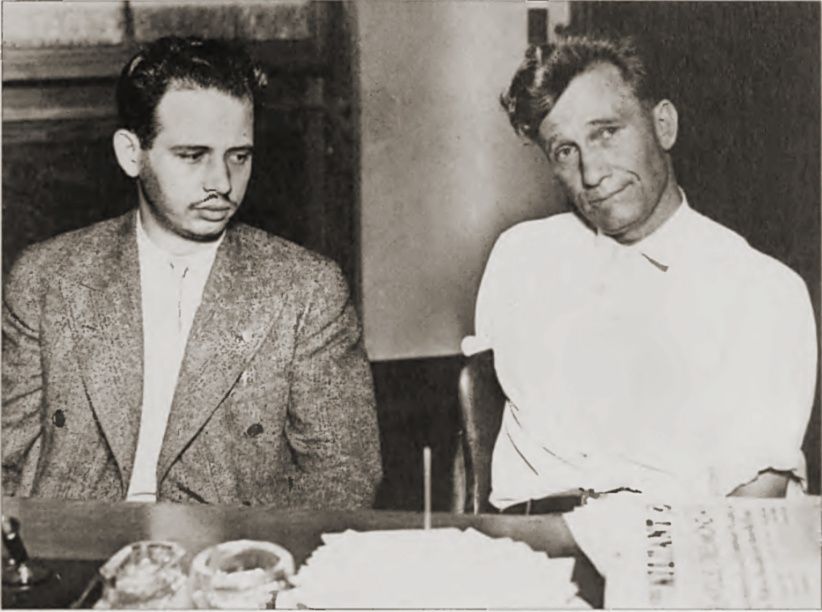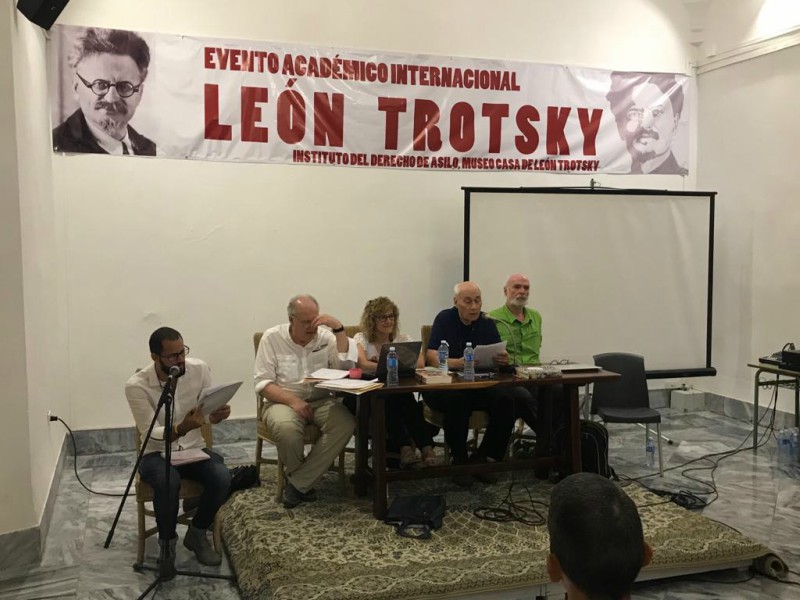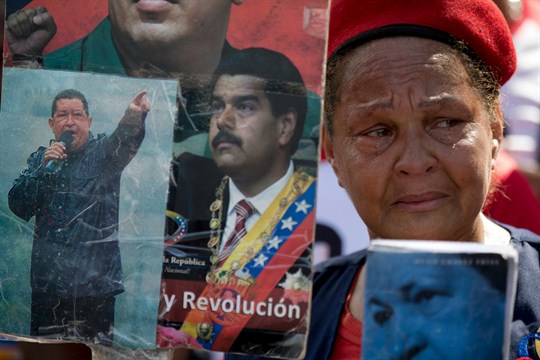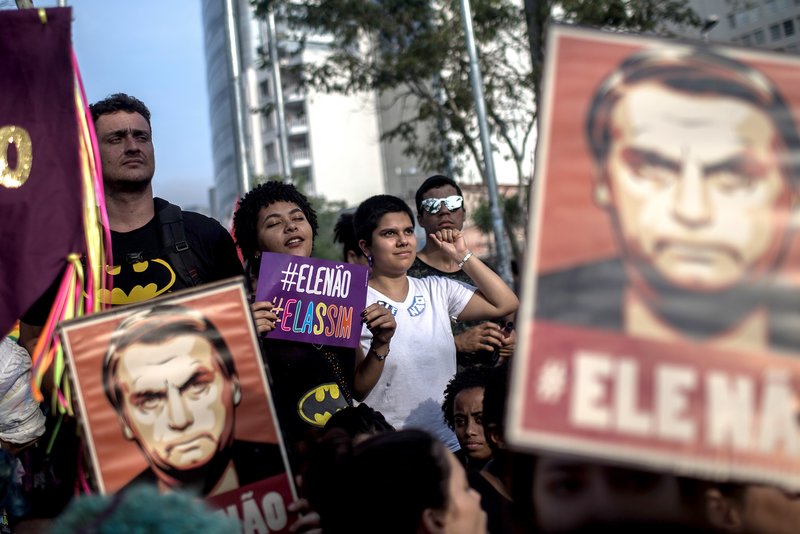Inspired by the unfolding socialist revolution in Venezuela, as well as the continuing example of socialist Cuba, Links International Journal of Socialist Renewal is a journal for "Socialism of the 21st century", and the discussions and debates flowing from that powerful example of socialist renewal.
Links is also proud to be the sister publication of Green Left Weekly, the world's leading red-green newspaper, and we urge readers to visit that site regularly.
Please explore Links and subscribe (click on "Subscribe to Links" or "Follow Links on Twitter" in the left menu). Links welcomes readers' constructive comments (but please read the "Comments policy" above).
This site is best viewed with the Firefox internet browser.
What happened to the International Socialist Organization?
By Paul LeBlanc

What happened to the International Socialist Organization (ISO) is that it self-destructed. The outgoing leadership of the outgoing organization presented this fact to the world in its statement of April 19, 2019, “Taking Our Final Steps”. For many who are committed to the socialist cause, whatever criticisms or reservations they might have had regarding the ISO, this is truly a defeat. One of the purposes of what follows is to explore how and why this happened, and what it means for those who take seriously the struggle for revolutionary socialism.
For some years the ISO had existed as the largest and strongest revolutionary socialist organization in the United States. As its foremost leader, Ahmed Shawki, emphasized more than once, the primary take-away from this indisputable fact was that revolutionary socialism was a pitifully weak force in the United States. And yet, the disappearance of this organization certainly merits more than a shrug.
Does Lonmin’s inclement death resolve – or reload – the Marikana massacre?
An obituary for the ‘unacceptable face of capitalism’

By Patrick Bond
On Tuesday, the world’s third largest platinimum mining house, Lonmin, will like die, remembered as the exemplar of multinational corporate irresponsibility. As a people’s trial hosted by the Marikana Solidarity Network gets underway outside Carlton House Terrace in London, where Lonmin’s shareholders vote on a friendly takeover deal (albeit with extremely dubious characteristics), many critics are shaking their heads – and fists – at the extraordinary financial and political circumstances.
Starting in 1909, the London and Rhodesian Mining and Land Company was a backwater mining house until it became one of the world’s most predatory corporations. The critical shift was Lonrho’s growth away from its origins in what is now Harare, during the 1962-93 leadership of Roland Walter Fuhrhop, a German who renamed himself Tiny Rowland and emigrated to England and then Rhodesia.
On Cannon, Shachtman and early US Trotskyism: Bryan Palmer's talk to the Havana conference on Leon Trotsky

Image: Max Shachtman with James P. Cannon.
What follows are Bryan Palmer’s notes for his presentation to the May 6th-8th, three-day conference in Havana, Cuba, organized to commemorate the centennial of the founding of the Third International, with a discussion of the topic, “Leon Trotsky and Trotskyism”. The second volume of Palmer’s major biography, James P. Cannon: Revolutionary Continuity and Class-Struggle Politics in the United States, 1890 – 1974, will be published by Brill at the end of 2019, and will be published soon thereafter in soft-cover, by Haymarket Books. It is titled James P. Cannon and the Emergence of Trotskyism in the United States, 1928-1938.
Remarks to the Trotsky Conference, Havana
Leon Trotsky and cultural revolution

By Doug Enaa Greene
May 13, 2019 — Links International Journal of Socialist Renewal reposted from Cosmonaut — The argument that a “cultural revolution” is a necessary part of a socialist revolution is generally associated with Mao Zedong and the Great Proletarian Cultural Revolution (1966-1976) that he initiated in China. However, Leon Trotsky, in a vastly different way than Mao, stated that Russia needed a cultural revolution. According to Trotsky, a cultural revolution was needed along with industrialization to construct socialism. Trotsky’s industrialization plan for Russia would increase the social weight of the proletariat. A cultural revolution would raise the masses’ cultural level by eradicating mass illiteracy and superstition and change their habits and customs, which would make the working class fit to rule society.
Trotsky’s theory of permanent revolution and defending the Cuban, Algerian and Vietnamese revolutions against imperialism

By Ernest Tate
Remarks prepared for the Havana Conference, May 6-8, 2019, on the occasion of the centennial of the founding of the Third International, on the topic of “Leon Trotsky and Trotskyism”.
An open letter to Extinction Rebellion

This letter was collaboratively written with dozens of aligned groups. As the weeks of action called by Extinction Rebellion were coming to an end, our groups came together to reflect on the narrative, strategies, tactics and demands of a reinvigorated climate movement in the UK. In this letter we articulate a foundational set of principles and demands that are rooted in justice and which we feel are crucial for the whole movement to consider as we continue constructing a response to the ‘climate emergency’.
Dear Extinction Rebellion,
The emergence of a mass movement like Extinction Rebellion (XR) is an encouraging sign that we have reached a moment of opportunity in which there is both a collective consciousness of the immense danger ahead of us and a collective will to fight it. A critical mass agrees with the open letter launching XR when it states “If we continue on our current path, the future for our species is bleak.”
Trotsky in Cuba, 2019

By Paul Le Blanc
May 12, 2019 — Links International Journal of Socialist Renewal — More than one friend has expressed the hope that I would write a report on my experience in attending an international conference on Leon Trotsky held in Havana, May 6-8, 2019 – so I have felt even more compulsion to craft such a report than I would have otherwise. Since I have come down here earlier than the dates of the conference, I find that I have time to begin shaping such an account as I am living through what I describe. My take on all of this is influenced, naturally, by my understanding of the Cuban Revolution – which can be found in “Origins and Trajectory of the Cuban Revolution,” in my collection Revolutionary Studies (Chicago: Haymarket 2017), first published in the journal Against the Current, January/February 2007 (which can be found online https://solidarity-us.org/atc/126/p319). My experience now seems to me consistent with what I wrote then.
Spanish elections: The right defeated and Catalonia’s right to decide re-asserted

By Dick Nichols
May 12, 2019 — Links International Journal of Socialist Renewal — How strongly would the filthy brown tide of reaction—the vote for the racist, xenophobic, islamophobic, anti-feminist, homophobic, pro-gun and above all anti-Catalan outfit Vox—run at the Spanish April 28 general election? That question was on everyone’s lips in the last week of the campaign.
Clara Zetkin’s defense of the united front

Clara Zetkin in the 1920s
By John Riddell
May 7, 2019 — Links International Journal of Socialist Renewal reposted from John Riddell's Marxist Essays and Commentary Blog — An internationally respected revolutionary leader since the 1880s and a close collaborator of Rosa Luxemburg, Clara Zetkin (1857-1933) became part of the newly formed Communist International (Comintern) in 1919. In 1921, she joined with Vladimir Ilyich Lenin and Leon Trotsky in helping to win the Comintern to an effort to unify working people and their organizations in joint struggle against the evils of capitalism. This policy was termed the “united front.” (See “Clara Zetkin’s Struggle for the United Front”.)
How indigenous genocide contributed to climate change

By Gerardo Honty
May 7, 2019 — Links International Journal of Socialist Renewal reposted from Alainet — Those who deny climate change caused by mankind tend to cite the so-called “Little Ice Age” as one of their arguments to defend the hypothesis of the natural origin of climate changes. The Little Ice Age, as it is known, to distinguish it from the great ice ages, covers a period from 1350 to 1850 approximately, when there was a significant lowering of the global average temperature with respect to the five previous centuries. The planet was emerging from a period known as the “Medieval Climate Optimum” and both processes have led the so-called “sceptics” or “deniers” to deduce from this, among other factors, the natural origin of present climate change. The warming that we are witnessing today, they deduce, comes from a new cycle of solar activity and not from human activity.
A Green New Deal must deliver global justice

By Asad Rehman
May 5, 2019 — Links International Journal of Socialist Renewal reposted from Red Pepper — For too long the severity and scale of the climate crisis has been deliberately understated, but October’s release of the IPCC’s Special Report on the Global Warming of 1.5°c finally sent shockwaves into the populations of rich countries. The urgent need for action was clear with the world now in ‘decade zero’, when every decision taken in the coming years will determine the extent to which the critical 1.5°c guardrail is breached triggering run away climate change. Despite these warnings the UN estimates that current emission targets will put the world on a trajectory of at least 3.4°c and possibly up to 7°c warming.
Michael Harrington and his afterlives

By Doug Enaa Greene
May 5, 2019 — Links International Journal of Socialist Renewal reposted from Cosmonaut — Michael Harrington (1928-1989) was the most important advocate for democratic socialism in the United States in the latter half of the twentieth century. He is widely, and deservedly, recognized for writing The Other America, a seminal exposé of poverty in the United States. However, Michael Harrington was not simply a public intellectual but a political activist who developed a vision to make democratic socialism into a major force in American life. His strategy was to realign the Democratic Party by driving out the business interests and transform it into a social democratic party. This new party of the people would then not only represent the interests of the vast majority and pass genuine reforms, but begin the transition to democratic socialism. Michael Harrington’s politics and vision have outlived him and they remain the “common sense” of much of the American left, shaping debates in the organization he founded, the Democratic Socialists of America (DSA).
Lenin, the Labour Party, and Democrats

By Doug Enaa Greene
May 5, 2019 — Links International Journal of Socialist Renewal reposted from Left Voice with permission — There is a relatively common justification among large sections of the American left who offer various levels of support to the Democratic Party that they are merely creatively applying Lenin’s tactics to the present moment. The argument is familiar: the British Labour Party had the allegiance of the trade unions and millions of workers. And in order not to be isolated from the mass of workers, Lenin argued that British communists should affiliate to the Labour Party and support its candidates in elections. In present day America, it is claimed that the Democrats are an equivalent to the Labour Party since they have the support of organized labor and that their candidates, especially “democratic socialist” ones, deserve the support of socialists in order to advance working-class interests. However, this is a false equivalence. The Labour Party of 1920 and the Democratic Party of 2019 are fundamentally different organizations, with the former owing its origin to trade unions and the latter being a thoroughly bourgeois institution.
Québec solidaire vows to fight CAQ government’s racist bill

By Richard Fidler
April 27, 2019 — Links International Journal of Socialist Renewal reposted from Life on the Left Blog — As it had threatened during last fall’s election campaign, the newly-elected Coalition Avenir Québec (CAQ) government has introduced legislation to prohibit a wide range of persons “in authority,” including teachers, from wearing symbols of their religious beliefs while exercising their functions.
Those affected include judges, prosecutors, police, and jail guards, but also teachers, childcare providers, public transit operators, health and social service workers, municipal and administrative tribunal and board officials, etc.
From women’s strikes to a new class movement: The third feminist wave

By Cinzia Arruzza
April 26, 2019 — Links International Journal of Socialist Renewal reposted from Viewpoint Magazine — On October 23, thousands of Glasgow cleaning workers kicked off the union demonstration for equal pay organized by Public Services International, Unison, and GMB with a minute’s silence, in memory of the women workers who died before being able to see the day when their work would be finally granted the same dignity and value as the work of their male colleagues. In this act there was full awareness of a long history of great and small humiliations, of invisible, unacknowledged, or underpaid work, of countless instances of injustice and petty abuses, as well as of the enormity of the challenge faced by the women’s strike. Equal pay: a reasonable, almost trivial goal, and yet so difficult to achieve, to such an extent that the World Economic Forum has calculated that – based on current trends and data – it will take at least 217 years to finally bridge the wage gap between women and men globally. (Granting that the world will still be habitable in 217 years…)
The Latin American left’s setbacks: What does it all mean?

Interview with Steve Ellner by Alan Freeman for Canadian Dimension
Freeman: The progressive Latin American governments of the twenty-first century, the so-called Pink Tide governments, have over the recent past received heavy blows and have been replaced by conservative and right-wing governments in Brazil, Argentina and evidently Ecuador. What are people on the right saying about these setbacks for the left?
Ellner: The detractors of the Pink Tide phenomenon imply or explicitly state that it will soon become a thing of the past without any long-lasting effect. The view is underpinned by the “dinosaur” narrative and the “end of history” thesis of Francis Fukuyama, along with the rights’ standard argument that socialism and the policies associated with it will end up in the dustbin of history. These writers and political activists, however, ignore that socialism has really not been put to the test because none of the Pink Tide countries have been socialist. Eighty percent of the Venezuelan economy, for instance, is owned by the private sector.
Brazil under Bolsonaro: Social base, agenda and perspectives

By Ana Garcia
April 26, 2019 — Links International Journal of Socialist Renewal reposted from Socialist Project — The rise of the far right is a worldwide phenomenon, rooted in the nefarious effects of neoliberal globalization which have pushed the world into mass unemployment and enormous inequalities. I consider it to be a late political effect of the global financial crisis that hit the world at the beginning of the twenty-first century.
It is not an easy task to explain the phenomenon of Jair Bolsonaro in Brazil and to understand the groups that support him, both within and outside government. It’s difficult, for anyone, to draw a truly complete and sober analysis of what we have experienced. This essay is not based on in-depth research but on collective reflections and debates. I intend to pose some key questions and try to identify some clues to answer them.
Building the Slovenian left: Successes and challenges in Eastern Europe’s most promising New Left project

April 26, 2019 — Links International Journal of Socialist Renewal reposted from Rosa Luxemburg Stiftung — Luka Mesec is the coordinator for the party Levica (“The Left”) in Slovenia. The party was only founded in summer 2017 and emerged from an electoral alliance between three left-wing parties that has been represented in the Slovenian parliament since 2014. In the last parliamentary elections in summer 2018, Levica won over nine percent of votes and has tolerated the liberal governing coalition since last fall. This makes it one of the few new left parties in Central and Eastern Europe that has met with electoral success. In conversation with the Rosa-Luxemburg-Stiftung’s Wenke Christoph, Luka discusses the political models that helped them succeed, and what challenges and chances come along with tolerating the government and building local structures.
Climate emergency manifesto: We only have one planet. Let's save it. Now!

By European United Left/Nordic Green Left
The latest IPCC Special Report (October 2018) is our last alarm bell for stopping mass human and environmental destruction caused by human-induced climate change. Its findings were alarming-rapid, far-reaching and unprecedented changes before the year 2030 are what is required if we are to have any chance of staying well below 1.5° global warming. The failure of governments to adequately deal with this man-made crisis is already impacting millions of lives, and the most vulnerable worldwide are always hit the hardest. Short-sighted market logic has delayed an adequate response for way too long. We need unprecedented political will to achieve an ecologically just Europe, where we accept our full climate responsibility and where our climate is not sacrificed for the profit of the few.
No shortcuts: The climate revolution must be ecosocialist

By Daniel Tanuro, translated by Richard Fidler
April 26, 2019 — Links International Journal of Socialist Renewal reposted from Climate & Capitalism — The following red-green manifesto for the 21st century was adopted by the national leadership of Belgium’s Gauche Anticapitaliste. Translated for Climate & Capitalism by Richard Fidler, who blogs at Life on the Left, with light editing by Ian Angus.




